Nature has blessed humans with many things so that we can survive. Worm composting is a way to breakdown naturally everything that is bio-degradable.
What is Worm Composting?
You may have heard of Vermicomposting or vermicompost. Composting using worms and turning food scraps and other organic material into organic compost, is a healthy way of recycling naturally all the waste that we would otherwise dispose of to the garbage truck.
Worms eat food scraps and all other kitchen waste. The worm digests the food which is then passed through the end of it’s body, which gives us compost that is purely organic, and can be used to fertilize vegetables, fruits flowers and any other plants. I find red worms work well for my compost.
Worms have been instrumental in breaking down organic material and producing the most valuable compost that is healthy with no added chemicals or growth hormones. They have been at this for millions of years and are a part of all that all important cycle of life.
Personally, as a home gardener, I prefer not to use meat fish or poultry scraps for worm composting, as I do not like the smell that it gives once it disintegrates. I suggest sticking to the fruits, vegetables, and other scraps including waste paper, but not with too much of ink. This is however a personal choice. I also add grass mulch along with the food scraps and dead leaves and wood that has decayed.
Related: 10 Common Composting Mistakes. Are You Making One Of Them?
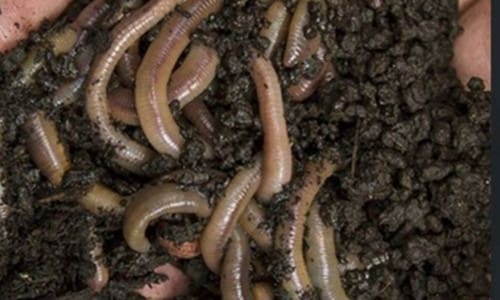
How to Build a Worm Compost Tower
PVC Pipe Method
Purchase a pvc pipe. Have holes drilled into the pipe and then find a location where you usually have mulch and dead leaves dead wood etc. The length of the pipe can be around 4ft and I use the larger circumference. You could also use a larger pipe and cut it according to the length you want.
Dig a hole sufficient to bury the pipe leaving around 6 inches above the ground level and bury it into the hole. Cover the top and leave for about 4-6 weeks occasionally opening up and adding more garbage as it goes on. Run a check on the worms to see that they don’t try to crawl out of the drilled holes.
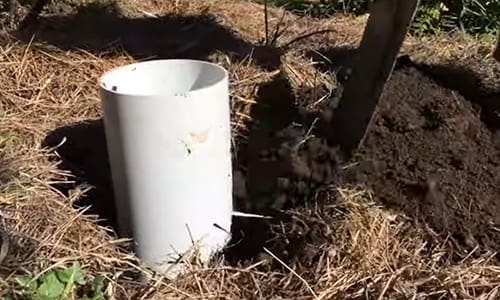
You can do the same with plastic boxes stacked one on top of the other with drainage holes drilled so the moisture drains into each container and you can make use of the liquid compost for many other gardening purposes. You can fit a tap on the last plastic box.
Next add mulch, shredded paper , dry leaves , kitchen scraps and then add a handful of worms. Add more of the composting materials until the top is full. Next add a generous amount of water into the pipe or boxes until you see moisture at the top.
You could use any type of material for your tower but bear in mind worms are wrigglers and they tend to want to creep in and out and sometimes wonder about, so it is your preference on whether you wish to have your Worm Compost tower , outdoors or indoors.
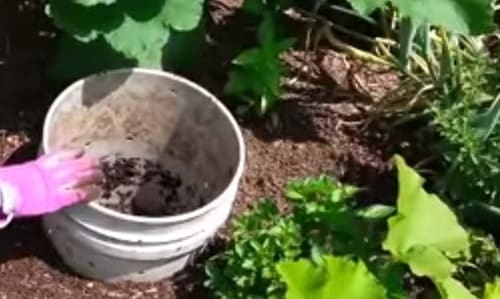
Worms are hard-working creatures and they will work endlessly eating your garbage and making compost.
The more you feed the worms you will find the pile of scraps and mulch you put in reducing, forming beautiful compost.
Worms need air, moisture, darkness, slightly warm and not hot environment.
Related: 36 PVC DIY Projects for Your Homestead
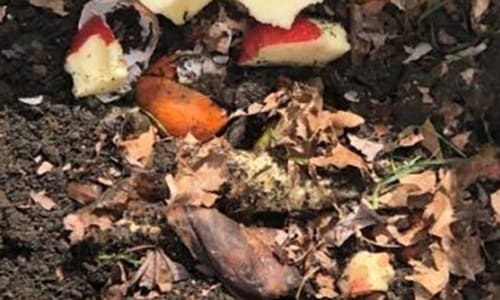
What Worms to Choose
I usually use red worms, or earth worms, and I find an occasionally weevil creeping in and really don’t mind if they burrow in and make the compost softer.
Since I usually have my compost in the garden, I am OK with any other little critters getting in through the holes. When you are handling organic material you really do not have to worry about some of these extra critters creeping in.
Usually around 1000 worms, which is around a pound, would be sufficient for a small tower for worm composting. If you however decide to use a larger unit then you can add more worms to the tower. If you do not have worms in your garden sufficient to build a worm composting tower, you can always purchase worms for farmers that harvest worms.
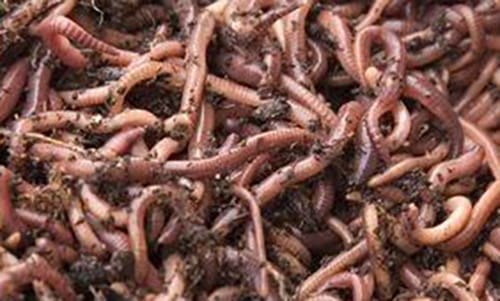
For successful and quick composting, you can turn the pile as the worms tend to be more activated when you stir up their habitat and this results in a quicker production of compost. Coffee grounds are an excellent compost and worms usually love this. It’s always good to add some extra worms right at the bottom layer.
Worms do not like extreme heat and generally will tend to burrow in deeper. Worms will eat almost half of their body weight. When you use worms for the soil it retains the water holding capacity and the texture of the soil improves. The best part is that all the nutrients are retained within this composting system making it an ideal solution to the composting for homesteading.
The ideal kitchen scraps to use for your worm composting would be fruits, veggie peels crushed eggshells and coffee grounds. Dairy and meat products should be avoided. Trust me adding these into a worm composting tower really stinks! If you really want to, then it is suggested that you do so in small quantities.
If you decide on a worm composting tower, built with plastic boxes, then keep checking the bin and if you see it drying up then lightly mist with water. If you have it in the garden, then you can water it as the excess moisture will absorb into the earth.
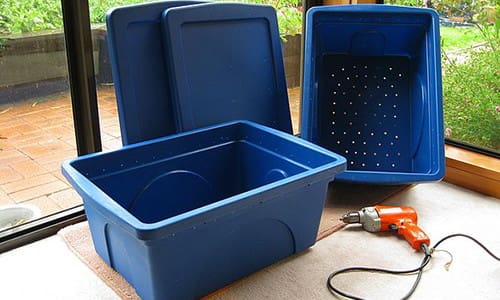
Harvesting
Generally, in about 1 ½ to 6 month,s you will find partially composted material that is black and grainy. Remove the contents and repeat the process again adding more kitchen scraps worms and water. The black sandy compost that you have taken out will be ready to be used.
You may also like:
 Stop Using THIS: It’s Ruining Your Compost
Stop Using THIS: It’s Ruining Your Compost
What Our Forefathers Did and Built Around the House (Video)
The Ultimate Guide To Composting
40 Uses For Sawdust Around Your Homestead
Worm-Farm: The Most Profitable Farm Per Square Meter
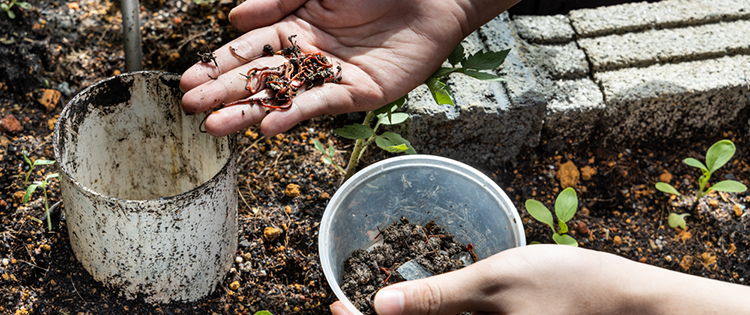

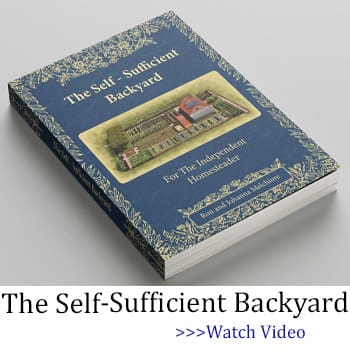

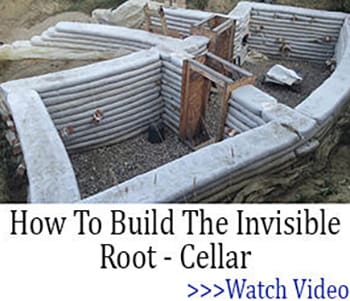
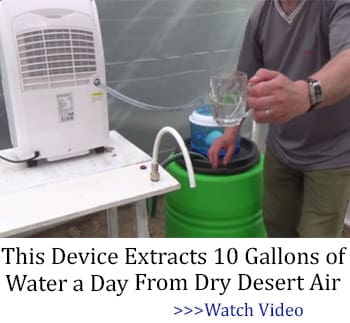
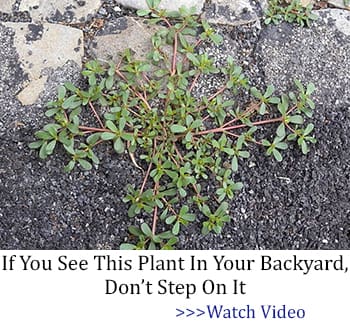
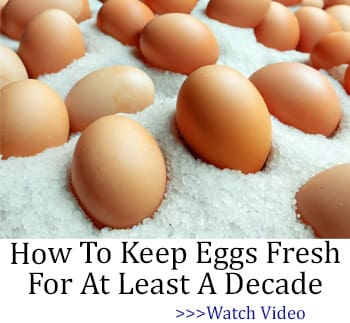

Thank you.
I am a beginner so please forgive me if the answer to this question may be obvious to others.When you take out the compost to put in your garden, do you try to leave the worms in the bin or put them in the garden too and just buy new worms<
Hi Maritza
I prefer to put them back to the garden so I can make use of them again when I have to make compost.
Hope the info helps.
Stay blessed
Judy G
What a lot to learn from this website. Useful article
Ewww the worms. I’m actually scared of worms but what good tips
LoL . Yea the wrigglies are yucky to some people but it does a world of good. Thanks for the comment.Judy